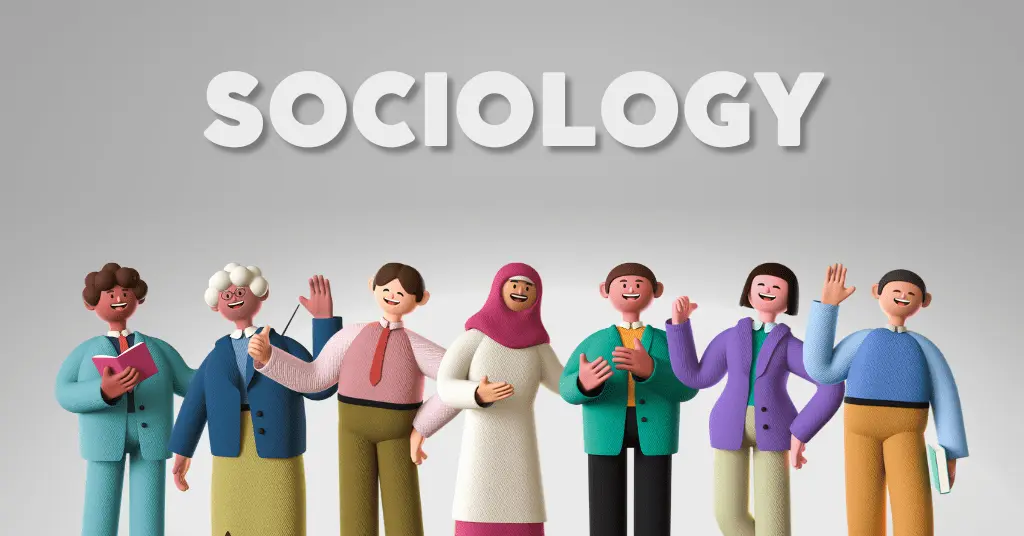Exploring the Rich Tapestry of Literature: A Journey Through Words and Imagination
Literature, often regarded as the mirror of society, encompasses a vast and diverse array of written works that reflect the human experience in all its complexity. From timeless classics to contemporary masterpieces, literature offers readers a window into different cultures, perspectives, and emotions, inviting them to explore the depths of the human psyche and the wonders of the world. In this article, we embark on a journey through the rich tapestry of literature, celebrating its beauty, diversity, and enduring power to inspire, provoke, and illuminate.
The Essence of Literature
At its core, literature is a form of artistic expression that captures the essence of the human condition through the written word. Whether in the form of novels, poems, plays, or essays, literature serves as a vehicle for storytelling, self-expression, and cultural reflection. Through vivid imagery, evocative language, and compelling narratives, literature transports readers to distant lands, immerses them in different time periods, and invites them to walk in the shoes of characters from all walks of life.
Genres and Forms
Literature encompasses a wide range of genres and forms, each with its own unique characteristics and conventions. Some of the most prominent genres include:
- Fiction: Fictional literature includes novels, short stories, and novellas, which are works of imagination that depict invented characters, settings, and events.
- Poetry: Poetry is a form of literary expression characterized by rhythm, meter, and often, lyrical language. Poems explore themes of love, nature, mortality, and the human condition through vivid imagery and metaphor.
- Drama: Drama encompasses plays and theatrical performances that unfold through dialogue and action. Plays explore themes of conflict, identity, and human relationships, often through the lens of theatrical performance.
- Non-fiction: Non-fiction literature includes essays, memoirs, biographies, and journalistic works that explore real-life events, people, and ideas. Non-fiction writers draw on research, observation, and personal experience to inform and enlighten readers about the world around them.
Themes and Motifs
Literature explores a myriad of themes and motifs that resonate with readers across cultures and generations. Some common themes include:
- Love and Relationships: Literature often delves into the complexities of love, romance, and human relationships, exploring themes of passion, betrayal, and longing.
- Identity and Belonging: Many works of literature explore themes of identity, self-discovery, and the search for belonging in a complex and changing world.
- Conflict and Resolution: Literature often examines themes of conflict, both internal and external, and the quest for resolution, justice, and reconciliation.
- Nature and the Environment: Nature features prominently in literature, serving as a source of inspiration, solace, and reflection on the human condition and our relationship with the natural world.
The Power of Literature
Literature has the power to inform, inspire, and transform both individuals and societies. Through its ability to evoke empathy, provoke thought, and challenge assumptions, literature fosters a deeper understanding of ourselves and the world around us. By engaging with diverse literary works, readers gain new perspectives, insights, and appreciation for the complexities of the human experience.
Nurturing Passion for Words and Stories
Choosing literature as a career is a deeply personal and meaningful decision for many individuals who possess a love for words, stories, and the power of narrative. Whether pursuing writing, teaching, publishing, or literary analysis, a career in literature offers a wealth of opportunities for creative expression, intellectual growth, and personal fulfillment. In this article, we explore the reasons why individuals choose literature as a career and the myriad pathways it offers for professional success and fulfillment.
Passion for Storytelling and Creativity
At the heart of choosing literature as a career lies a passion for storytelling and creativity. For many aspiring writers, poets, and novelists, literature offers a platform to give voice to their imagination, explore the depths of human experience, and create worlds that captivate and inspire readers. Whether writing fiction, poetry, or non-fiction, literature provides an outlet for artistic expression and a means to connect with audiences on a profound emotional level.
Love for Language and Linguistic Exploration
Literature attracts individuals who possess a deep appreciation for language, linguistics, and the beauty of words. For linguists, philologists, and literary scholars, literature offers an opportunity to study the nuances of language, analyze linguistic patterns, and trace the evolution of literary traditions across cultures and time periods. Through the study of literature, language enthusiasts gain insights into the richness and diversity of human communication and the power of words to shape our understanding of the world.
Desire to Inspire and Educate Others
Many individuals choose literature as a career because they are passionate about inspiring and educating others through the written word. For teachers, professors, and educators, literature offers a means to foster critical thinking, empathy, and cultural awareness in students of all ages. By introducing students to classic and contemporary works of literature, educators cultivate a love for reading, encourage creativity, and empower individuals to become thoughtful and engaged members of society.
Commitment to Literary Advocacy and Publishing
Literature attracts individuals who are committed to advocating for writers, supporting literary diversity, and promoting the value of literature in society. For literary agents, editors, and publishers, literature offers an opportunity to discover emerging talent, champion marginalized voices, and bring stories to life for readers around the world. By working behind the scenes, literary professionals play a crucial role in shaping the literary landscape and ensuring that diverse voices are heard and celebrated.
Pursuit of Personal Fulfillment and Impact
Ultimately, choosing literature as a career is often driven by a desire for personal fulfillment and the opportunity to make a meaningful impact in the world. Whether writing stories that touch hearts, teaching literature that broadens minds, or advocating for writers whose voices have been silenced, literature offers a pathway to leave a lasting legacy and contribute to the cultural enrichment of society. By following their passion for words and stories, individuals who choose literature as a career find fulfillment in the pursuit of their creative and intellectual endeavors.
Exploring the Multifaceted Subjects within Literature: A Comprehensive Overview
Literature, as a vast and diverse field, encompasses a multitude of subjects that illuminate the human experience through the written word. From the study of literary genres and movements to the analysis of cultural contexts and historical influences, literature offers a rich tapestry of subjects for exploration and inquiry. In this article, we delve into the various subjects that comprise the field of literature, highlighting their significance in understanding and interpreting literary texts.
Literary Genres
Literature encompasses a wide range of genres, each with its own distinct characteristics, conventions, and themes. Some of the most common literary genres include:
- Fiction: Fictional literature includes novels, short stories, and novellas, which are works of imagination that depict invented characters, settings, and events. Fiction explores themes such as love, friendship, loss, and identity through narrative storytelling.
- Poetry: Poetry is a form of literary expression characterized by rhythm, meter, and often, lyrical language. Poems explore themes of nature, love, mortality, and the human condition through vivid imagery and metaphorical language.
- Drama: Drama encompasses plays and theatrical performances that unfold through dialogue and action. Dramatic works explore themes of conflict, morality, power, and human relationships through the portrayal of characters and their interactions.
- Non-fiction: Non-fiction literature includes essays, memoirs, biographies, and journalistic works that explore real-life events, people, and ideas. Non-fiction writers draw on research, observation, and personal experience to inform and enlighten readers about the world around them.
Literary Movements and Periods
Literature is shaped by historical, cultural, and social forces that give rise to distinct literary movements and periods. Some of the major literary movements include:
- Renaissance: The Renaissance was a period of cultural and intellectual revival in Europe during the 14th to 17th centuries, characterized by a renewed interest in classical learning, humanism, and individualism.
- Romanticism: Romanticism emerged in the late 18th and early 19th centuries as a reaction against the rationalism and order of the Enlightenment. Romantic literature emphasized emotion, imagination, and the sublime, with a focus on nature, individualism, and the supernatural.
- Realism: Realism developed in the 19th century as a literary movement that sought to portray everyday life and social reality with accuracy and detail. Realist writers depicted ordinary people and events, often addressing social issues such as poverty, inequality, and industrialization.
- Modernism: Modernism emerged in the late 19th and early 20th centuries as a response to the upheavals of the modern world, including urbanization, industrialization, and world wars. Modernist literature experimented with form, language, and narrative structure, reflecting the fragmented and uncertain nature of modern life.
Themes and Motifs
Literature explores a myriad of themes and motifs that resonate with readers across cultures and time periods. Some common themes include:
- Love and Relationships: Literature often delves into the complexities of love, romance, and human relationships, exploring themes of passion, betrayal, and longing.
- Identity and Belonging: Many works of literature explore themes of identity, self-discovery, and the search for belonging in a complex and changing world.
- Conflict and Resolution: Literature often examines themes of conflict, both internal and external, and the quest for resolution, justice, and reconciliation.
- Nature and the Environment: Nature features prominently in literature, serving as a source of inspiration, solace, and reflection on the human condition and our relationship with the natural world.
Literary Analysis and Criticism
Literary analysis and criticism are essential subjects within the field of literature, providing scholars and readers with tools for interpreting and evaluating literary texts. Literary analysis examines elements such as plot, character, setting, theme, and symbolism to uncover deeper meanings and themes within a work. Literary criticism engages with broader theoretical frameworks and approaches to literature, including structuralism, postcolonialism, feminism, and psychoanalysis, to interpret texts within their cultural, historical, and social contexts.
A Guide to Pursuing Excellence in Literary Education
Choosing the right university for studying literature is crucial for individuals passionate about exploring the depths of literary works, honing their critical thinking skills, and engaging with diverse literary traditions. Top universities with esteemed literature programs offer rigorous coursework, renowned faculty, and vibrant academic communities dedicated to advancing literary scholarship and fostering a love for reading and writing. In this article, we explore some of the top universities renowned for their excellence in literature studies and the unique opportunities they provide for literary enthusiasts.
Harvard University
Harvard University, located in Cambridge, Massachusetts, is renowned for its prestigious English department and its commitment to literary excellence. The English department at Harvard offers a comprehensive program in literature studies, covering a wide range of genres, periods, and themes. With access to distinguished faculty members and world-class resources such as the Widener Library, Harvard provides students with a rich and stimulating academic environment to explore the complexities of literary texts and literary theory.
University of Oxford
The University of Oxford, located in the United Kingdom, is internationally recognized for its outstanding literature programs and its esteemed faculty members. The English Faculty at Oxford offers a rigorous curriculum in literature studies, with a focus on critical analysis, literary theory, and interdisciplinary approaches to literary texts. With its rich literary tradition and historic campus, Oxford provides students with a unique opportunity to engage with classic and contemporary works of literature in a vibrant academic community.
University of Cambridge
The University of Cambridge, also located in the United Kingdom, is renowned for its excellence in literature studies and its interdisciplinary approach to literary scholarship. The Faculty of English at Cambridge offers a diverse range of courses and research opportunities, covering a wide range of literary genres, periods, and themes. With its world-class faculty members and cutting-edge research facilities, Cambridge provides students with a dynamic and intellectually stimulating environment to explore the complexities of literary texts and literary criticism.
Yale University
Yale University, located in New Haven, Connecticut, boasts a renowned English department known for its innovative research and interdisciplinary approach to literature studies. The English department at Yale offers a comprehensive program that emphasizes close reading, critical analysis, and creative expression. With access to renowned faculty members and resources such as the Beinecke Rare Book & Manuscript Library, Yale provides students with a rich and immersive academic experience to explore the world of literature.
Stanford University
Stanford University, situated in California’s Silicon Valley, is recognized for its vibrant literary community and its commitment to literary excellence. The English department at Stanford offers a wide range of courses and research opportunities, covering diverse literary traditions, genres, and themes. With its interdisciplinary approach to literature studies and its emphasis on creative writing and literary theory, Stanford provides students with a dynamic and intellectually stimulating environment to explore the power of language and storytelling.
University of California, Berkeley
The University of California, Berkeley, boasts a renowned English department known for its interdisciplinary approach to literary studies. With a diverse faculty and a wide range of courses covering various literary traditions and critical approaches, Berkeley provides students with a vibrant academic community to explore the complexities of literature.
Columbia University
Columbia University, located in New York City, is home to a distinguished English and Comparative Literature department. With its emphasis on literary theory, cultural studies, and interdisciplinary research, Columbia offers students a rich academic environment to engage with diverse literary traditions and critical perspectives.
University of Chicago
The University of Chicago’s English department is known for its rigorous curriculum and its emphasis on close reading, critical analysis, and intellectual debate. With renowned faculty members and a strong tradition of literary scholarship, Chicago provides students with valuable opportunities for academic and personal growth in the field of literature.
University of Cambridge (Anglia Ruskin University)
Anglia Ruskin University, part of the University of Cambridge network, offers a comprehensive program in English Literature and Creative Writing. With its focus on both literary analysis and creative expression, Anglia Ruskin provides students with a dynamic and supportive environment to explore the world of literature and develop their writing skills.
University of Edinburgh
The University of Edinburgh, located in Scotland, is renowned for its vibrant literary scene and its prestigious English Literature department. With its historic campus and its strong tradition of literary scholarship, Edinburgh offers students a rich and immersive academic experience to explore the diversity of literary texts and traditions.




